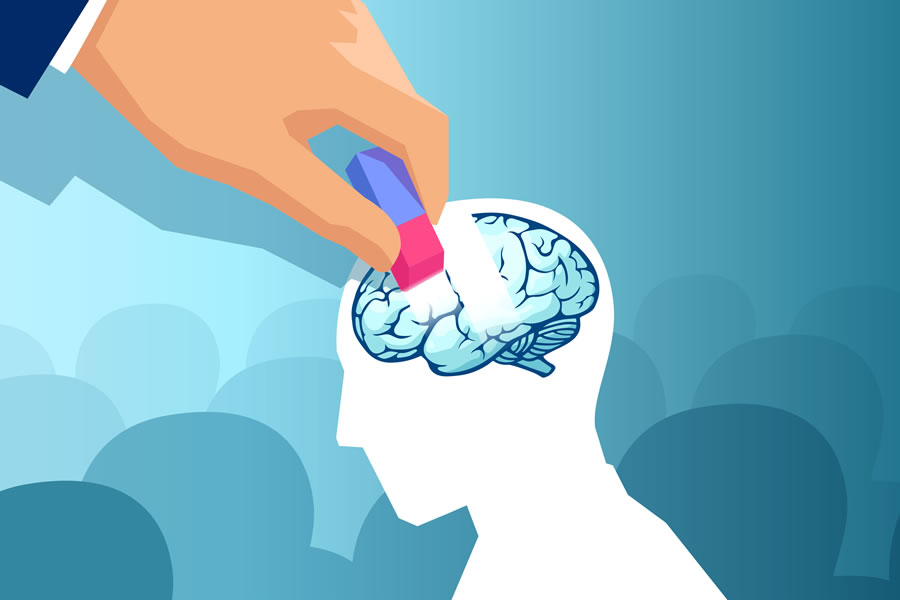Dave Asprey, the New York Times bestselling author of Head Strong, explains the principles that propel successful people forward and the “weasel words” to avoid in his latest book Game Changers: What Leaders, Innovators and Mavericks Do to Win at Life.
Get into this habit: as soon as you say “I can’t” or you are told “you can’t”, immediately dismiss it as false
Dave Asprey’s Game Changers: What Leaders, Innovators and Mavericks Do to Win at Life is a collection of 46 rules for life drawn from 450 interviews with the best of the best from various fields. One of these rules is about your vocabulary. The fact is that the words we use form part of our mental programming. Use it wisely and carefully, and you will be able to achieve results that you had never dreamed of before. Perhaps Jack Canfield, the American author, motivational speaker, seminar leader, corporate trainer and entrepreneur who sat down with Dave Asprey, knows the most about the power of words. He has a whole list of harmful weasel words. If these words are used during a meeting at Jack’s company, he sends the person to one of the special empty containers set up around the office. For every weasel word used, the guilty person must put two dollars into the container. This is not a punishment, but a way to show that pessimistic vocabulary affects the bottom line of the business. Here are the four particularly dangerous weasel words.
The most destructive word: “can’t”
When you say “I can’t do this”, you really mean one of the following:
-
You do not have enough support or help
-
You do not yet have the necessary means to achieve the goal
-
You have not yet come up with an action plan
-
You do not want to get things done
Or maybe you are simply at a loss over where to go, not daring to take the next step. In short, do not hastily call any of your goals unattainable.
This goal simply may not match the current stage of your life, or the path to it may be filled with a variety of obstacles, which calls for courage and persistence from you. Unlike the conscious part, the subconscious part of your mind is unable to understand the real reasons why you use the word “can’t”. It just listens to whatever you say. This miscommunication between the two parts of your brain leads to confusion and a heightened level of anxiety. You can return to inner balance and self-confidence if you start, as often as possible, using words that both your conscious and subconscious mind will interpret in the same way.
Unlike the conscious part, the subconscious part of your mind is unable to understand the real reasons why you use the word “can’t”.
Get into this habit: as soon as you say “I can’t” or you are told “you can’t”, immediately dismiss it as false. Try going one whole week without using the word “can’t”, then do it for a month, then a year... Do not forget that when those around you hear you talk, they perceive it on two levels: the conscious and the subconscious. By choosing your words carefully, you will begin to win more and more people over.
When your body receives a command with the words “must” or “need”, it sees it as a life-or-death requirement
Your parents’ favourite: “need”
What do your parents have to do with this? Words like these are often used by adults when talking to children; for example, parents say: “We need to go. You need to put on a coat.” In fact, there is nothing necessary here: parents simply want their child to put on a coat so that they do not catch a cold. When your body receives a command with the words “must” or “need”, it sees it as a life-or-death requirement. This is how the deep subconscious part of your mind works; while the conscious part perfectly understands the real meaning of any “must” or “need”. That is why you should only use the words “must” or “need” as a last resort. This is especially important for those who want to manage people effectively. The point is that our bodies are unable to sense the difference between a real and an imagined threat. You might tell your team, “We need to complete these tasks.” Everyone becomes so convinced that it’s almost as if each of their lives depend on fulfilling your order. Sooner or later this leads to panic and a lot of missteps. It is much more humane and productive to say, for example, “Guys, this is a really important task for all of us. Let’s discuss the obstacles that might hinder us. What steps will allow us to overcome them?” Would you not agree?
The judgmental “bad”
In reality, there are very few truly “bad” things in life. This word is often just your own judgmental viewpoint. By listening to it, the subconscious mind starts to gear up your psyche and biochemical processes in the body to face a serious threat. For example, we often say the word “bad” in relation to food. But after all, different people have different tastes, so it is meaningless to call a dish bad as there is someone who would like it. The world is not split up into just “bad” and “good”. Of course, there are certainly terrible things, such as violent acts or natural disasters. But when it comes to our daily lives, it is stupid to look at everything that happens through this black-and-white filter. By labelling a circumstance as “bad”, you create unnecessary difficulties for yourself and miss out on the opportunity to find out the positives it may bring.

By labelling a circumstance as “bad”, you create unnecessary difficulties for yourself and miss out on the opportunity to find out the positives it may bring.
Master Yoda from Star Wars said, “Try not! Do. Or do not. There is no try.” He became wise and powerful because he was a doer, not a tryer
The harbinger of failure: “try”
If someone said, “I’ll try to drive to the airport tomorrow and pick you up,” would you count on them? From the way they formulated that sentence, they may not come. You would trust someone more if they simply said that they would come and get you. If you tell yourself that you will try to stick to some kind of diet for a certain number of days, or that you will try to read a book, then your subconscious will plan for failure, and you will either have a pig out session, or laziness and drowsiness will stop you from getting through the right number of pages.
Try this: put a notebook or a nearby object on your lap, then pick it up and set it back down on your lap. Then tell yourself, “I’ll try to pick this up.” Now what happens? Are you a little confused? For some people, the object feels several times heavier, while others are not at all able to take the weight at the first attempt. All this is because of the single word “try”. When it hears this, the mind prepares for an unsuccessful outcome. Remember what Master Yoda from Star Wars said: “Try not! Do. Or do not. There is no try.” He became wise and powerful because he was a doer, not a tryer. Follow his example!
Source
Download PDF






